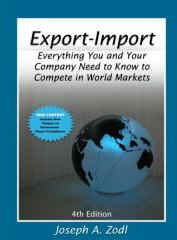
On February 19,
1999, Under Secretary for Export Administration William Reinsch imposed a
$750,000 civil penalty on the Aluminum Company of America (ALCOA) for 100
violations of the Export Administration Regulations (EAR). Reinsch affirmed the
findings of an Administrative Law Judge (ALJ) that ALCOA exported potassium
fluoride and sodium fluoride to Jamaica and Suriname on 50 separate occasions
without obtaining the required Commerce export licenses. Additionally, the ALJ
found that ALCOA made false statements in connection with each of the 50
shipments. ALCOA committed the violations because its export compliance program
failed to recognize that the chemicals in question had been added to the
Commerce Control List.
On July 31, 1998, IBM East Europe/Asia Ltd., a Russian subsidiary of International Business Machines Corp., pleaded guilty in U.S. District Court in Washington, D.C. to charges that, in 1996 and 1997, it exported a total of 17 computers to a Russian nuclear weapons laboratory, Arzamas-16, having reason to believe that the computers would be used “directly or indirectly” in research on, or development, design, manufacture, construction, testing or maintenance of nuclear explosive devices. The court imposed an $8.5 million criminal fine, the maximum permitted for the charges to which the company pled guilty. In a related administrative action, Assistant Secretary Amanda DeBusk ordered IBM East Europe/Asia to pay $171,000 and denied its export privileges for two years. Imposition of the denial period was suspended, and will be waived, provided the company does not violate the Export Administration Regulations (EAR) or any order issued under the EAR during the two-year probation period. Additionally, IBM East Europe/Asia agreed that, during the next two years, it will not use license exception CTP, and will not to engage in any transactions involving nuclear or military end users or end uses without written authorization from BXA.
Sun
Microsystems of California Ltd.,/ Gold Valley Technology Company
On June 21, 1999, the Commerce Department imposed a
$30,000 civil penalty on Sun Microsystems of California, Ltd., a Hong Kong
company, to settle allegations that it violated the EAR by arranging for
shipments of computers to the People’s Republic of China (PRC) that did not
adhere to a condition of the export license. In a related matter, on December
21, 1999, the Commerce Department’s imposed a $20,000 civil penalty on Gold
Valley Technology Company to settle
allegations that it violated a term of an export license involving a shipment of
computers to the People’s Republic of China. A portion of the civil penalty
imposed against Gold Valley, $10,000, was suspended.
The Department
alleged that, in September 1993, Sun Microsystems and Gold Valley arranged for a
shipment of computers to the PRC that they knew or had reason to know was
contrary to the condition on the export license. The Department also alleged
that in October 1993, Sun Microsystems arranged for a shipment of computers to
the PRC falsely representing that the shipment was authorized under a BXA
license. The investigation was conducted by OEE’s Washington Field Office
References to Bureau of Export Administration and BXA are to the earlier name of the Bureau of Industry and security or BIS.
Source: Bureau of Industry and Security